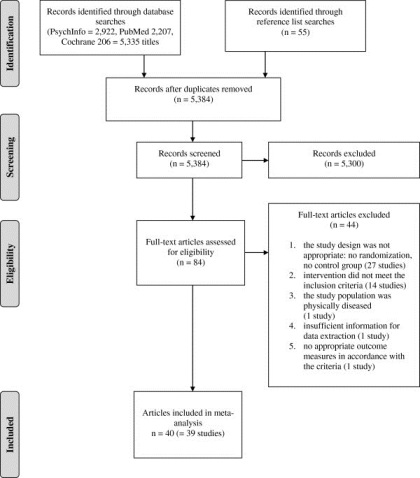There is a study from Hong Kong in the Australian and New Zealand Journal of Psychiatry looking at relapse rates in first-episode psychosis. The researchers looked at the cumulative relapse rate as well as risk factors for relapse. The researchers identified many risk factors for relapse which included non-concordance with medication (Hui et al, 2013).
There is an open-access article on structural MRI findings in Schizophrenia in the Journal of the Norwegian Medical Association available in both Norwegian and English. The researchers found evidence of reduced Hippocampal volume but increased volume in the Globus Pallidus in study subjects with Schizophrenia compared to controls.
News Roundup Elsewhere
There is a round-up of anthropology news here which includes a brief discussion about how anthropologists are taking on difficult issues such as healthcare access.
Health and Wellbeing
Bolier and colleagues undertook a meta-analysis of positive psychology interventions (see Appendix) in randomised control trials. They looked at outcomes for subjective and objective well-being and depression. The researchers used standardised effect sizes when comparing different treatment approaches.
Diagram from (Bolier et al, 2013), Creative Commons 2.0
The researchers found positive effects for subjective and objective well-being as well as Depression. The results for Depression are shown below.
Diagram from (Bolier et al, 2013), Creative Commons 2.0
For Depression, Cohen’s D was 2.0 (95% Confidence Interval 0.09-0.30 with p<0.1).
A study in the Lancet found no benefit for exercise on Depressive symptoms in nursing home residents in this National Institute for Health Research Health Technology Assessment Programme study. Many studies have found positive benefits for exercise on mental illness including Depression and it will be interesting to see the results of further research in this area.
Neuroscience
A single protein significantly influence both brain expansion and folding during development based on the findings from a study in the Journal Cell (Stahl et al, 2013).
Dr Micah Allen has an interesting piece on what multivariate analysis might mean for understanding functional Magnetic Resonance Imaging data.
References
Bolier L, Haverman M, Westerhof GJ, Riper H, Smit F, Bohlmeijer E. Positive psychology interventions: a meta-analysis of randomized controlled studies. BMC Public Health. 2013 Feb 8;13:119.
Hui CL, Tang JY, Leung CM, Wong GH, Chang WC, Chan SK, Lee EH, Chen EY.Aust N Z J Psychiatry. 2013 Apr 23. [Epub ahead of print] A 3-year retrospective cohort study of predictors of relapse in first-episode psychosis in Hong Kong.
Ronny Stahl, Tessa Walcher, Camino De Juan Romero, Gregor Alexander Pilz, Silvia Cappello, Martin Irmler, José Miguel Sanz-Aquela, Johannes Beckers, Robert Blum, Víctor Borrell, Magdalena Götz. Trnp1 Regulates Expansion and Folding of the Mammalian Cerebral Cortex by Control of Radial Glial Fate. Cell, 2013; 153 (3)
Underwood M et al. Exercise for depression in elderly residents of care homes: a cluster-randomised controlled trial. The Lancet, Early Online Publication, 2 May 2013.
Appendix
Positive Psychology Resources on this Site
Index: There are indices for the TAWOP site here and here Twitter: You can follow ‘The Amazing World of Psychiatry’ Twitter by clicking on this link. Podcast: You can listen to this post on Odiogo by clicking on this link (there may be a small delay between publishing of the blog article and the availability of the podcast). It is available for a limited period. TAWOP Channel: You can follow the TAWOP Channel on YouTube by clicking on this link. Responses: If you have any comments, you can leave them below or alternatively e-mail justinmarley17@yahoo.co.uk. Disclaimer: The comments made here represent the opinions of the author and do not represent the profession or any body/organisation. The comments made here are not meant as a source of medical advice and those seeking medical advice are advised to consult with their own doctor. The author is not responsible for the contents of any external sites that are linked to in this blog.


